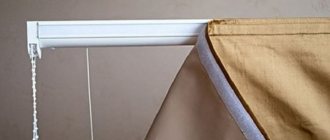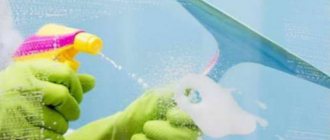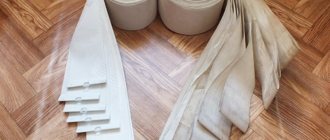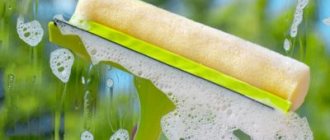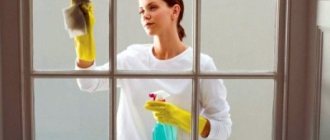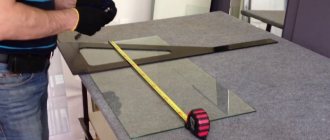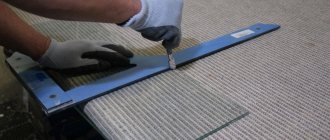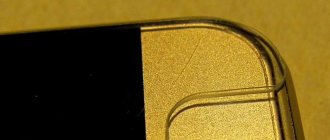At first glance, there is nothing easier than washing glassware.
But in fact, ignorance of the intricacies of this process can be the reason that shining glasses, wine glasses, glasses very quickly lose their original attractive appearance.
How to wash glassware, is it possible to wipe it, how to remove stubborn dirt? Let's look at these and many other secrets of proper glassware care in more detail.
General rules
Glassware is a fragile product that requires special, delicate handling. You can preserve the shine and blueness of glass for the longest possible period of time , provided that certain care rules are followed:
Glassware is washed only with cool water (hot water makes glass cloudy). An exception may be very dirty products covered with a greasy coating.- To keep the dishes shiny, dry the glass only naturally (towels, paper napkins leave lint on the shiny surface).
An exception may be natural linen towels or soft flannel. - Glassware is washed only with special liquid detergents (the use of abrasive powders is the main reason for the loss of shine and transparency of glass surfaces).
Store washed dishes in closed cabinets, not allowing the glass surfaces of glasses, wine glasses, glasses to come into contact with each other.
Why does glass become cloudy?
There are many reasons for the aging of the glass surface. One of them is associated with the use of too aggressive detergents. Negative factors include increased water hardness, high temperature of the washing liquid, as well as physical friction when dishes are placed too closely together.
Therefore, to avoid aging and clouding, use gentle cleaning compounds, do not place items close together, especially when washing in the dishwasher, and use different filters or other methods to soften the water.
The quality of tableware production plays an important role in the rate of glass aging. The presence of a large number of microcracks on the surface, which we cannot see with the eye, will eventually cause the development of glass corrosion and corrosion of the material under the influence of alkali. Such damage is already irreversible, and such defects can only be dealt with at the initial stage.
To keep glass appliances in their original form, it is important to properly care for the products. Let's look at how to wash glassware without streaks so that it sparkles and shines.
Folk remedies
It is easy to wash glassware without using household chemicals. There are a sufficient number of available tools that will help restore the shine and shine to the glass.
Mustard
Dry mustard powder will cleanse congealed fat and remove unpleasant odor.
Algorithm of actions:
- dilute 2 tbsp in 5 liters of warm water. dry mustard powder;
- use a soft cloth soaked in the prepared solution to treat contaminated surfaces;
- Clean dishes are rinsed under running water and placed on a flat surface to dry.
Mustard can cause dryness and redness of the skin on your hands. It is necessary to wear gloves when washing dishes with mustard.
Baking soda
This is a very popular folk remedy that helps cleanse stubborn dirt. It's simple: glass surfaces are carefully wiped with a soft sponge soaked in a soda solution (soda is diluted with water to a thick paste). The already clean product is rinsed under running water.
Ammonia
A solution of ammonia will help restore the shine and shine of glassware.
Algorithm of actions:
- Dissolve 1 tsp in 1 liter of warm water. ammonia.
- Dip dirty dishes into the resulting solution and leave for forty minutes.
- Without rinsing, wipe the glass dry with a soft flannel or linen kitchen towel.
Particularly contaminated areas are wiped with a mixture of ammonia and toothpaste. The ingredients are mixed to a paste, which is carefully rubbed into the contaminated surface with a paper napkin. After thirty minutes, the paste is washed off under running water.
Table vinegar
Vinegar will help you quickly deal with white limescale or brown traces of tea and coffee on the surface of glassware.
Algorithm of actions:
- dissolve 1 tbsp in a liter of water. table vinegar;
- Dirty cups and glasses are immersed in the prepared solution and left for twenty minutes, after which they are removed and, gently wiped with a soft sponge, washed off under running water.
If you don’t have vinegar on hand, citric acid can replace it. The cleaning solution is prepared at the rate of 2 tbsp. dry citric acid powder per liter of warm water.
Table salt
Regular table salt will help restore shine and remove stains. The cleaning solution is prepared using a ratio of one part salt to one part water .
The glassware is immersed in the prepared saline solution, left for ten minutes, then wiped with a soft sponge and rinsed off under running water.
Any stubborn dirt on the glass should be sprinkled with fine salt and left for half an hour. During this time, the salt will absorb the dirt, and all that remains to be done is to wash off the glass with cool water.
Eliminating plaque
Very often, a large amount of standing water causes a limescale deposit to appear inside glassware. It is very difficult to wash, and most often it is also located in hard-to-reach places. Therefore, some resort to using hard brushes or sponges, which will only cause harm.
The easiest way to get rid of this plaque is vinegar or a solution of citric acid. They are poured inside the container. It will take about 15 minutes to remove plaque. After this, the dishes are washed several times with water.
Special preparations
the following recommendations will help you choose the right detergent for glassware
- For glass, only liquid, gel-like compositions are used (dry powders destroy the shine of wine glasses, glasses and other kitchen utensils made of glass).
- A detergent with a light citrus, fruit or floral aroma is more effective in combating unpleasant odors on glass surfaces (the exception is those with strong chemical odors, which should be avoided).
- The best products are those that contain enzymes, organic natural active substances, alcohol, essential oils (the fewer synthetic additives in the composition, the safer the chosen product is for human health).
TOP 3 best cleaning products for glassware:
Organic People Green clean lemon
Eco-gel with lemon extract, aloe, calendula, rosemary essential oils will clean not only glassware, but also vegetables and fruits from any dirt in a matter of minutes.
An absolutely safe, natural product recommended for treating various accessories for small children.
The average cost is 240 rubles. (volume 500 ml). Read reviews here and here.
Chamgreen Green Citrus
Concentrated dishwashing detergent gently removes stains from glass surfaces. Herbal ingredients do not irritate the delicate skin of the hands . Green tangerine extract leaves a light, pleasant aroma.
Chamgreen Green Citrus gel is marked with a special ECO certificate, which makes it absolutely safe for the environment and human health.
Average cost 450 rub. (volume 1200 ml). Read reviews here and here.
Frosh
Frosh concentrated dish soap (soda) effectively cleanses from:
- fatty deposits,
- traces of tea, coffee,
- eliminates unpleasant odors.
The average cost is 200 rubles. (volume 500 ml). Read reviews here and here.
Before purchasing, it is very important to make sure that the packaging of the detergent is marked “for dishes”.
How to remove yellowness?
Hard tap water leaves a yellowish coating on the walls of glass glasses, glasses, and wine glasses. restore the shine and shine of glassware :
- Rinse in a blue solution (1 tsp of blue is enough for 5 liters of water). After rinsing, the glass is thoroughly polished with a soft, lint-free cloth.
- Treatment with a soft cloth soaked in ethyl alcohol. After processing, wipe the dishes dry with a linen towel.
- A slice of lemon will help quickly remove the yellowish coating from glasses, glasses, and cups. It is enough to wipe the contaminated areas with a cut of a lemon and the glass will regain its shine and radiance.
There is no need to try to scrape off the yellowish coating from the glass. The result of such actions is deep scratches that disfigure the appearance of glassware.
Recommendations for caring for glassware
Glassware is durable and withstands high temperatures and washing in the dishwasher.
However, it can be broken or damaged if not properly cared for. To prevent this from happening, just follow the general rules:
- Avoid sudden temperature changes. Hot glass can crack if cold water is poured on it, and vice versa.
- Washing in boiling water can cause cracks even in heat-resistant cookware. It's better to turn on warm water.
- Avoid mechanical influence. Glass is quite difficult to scratch, but aggressive abrasive substances or metal sponges can leave marks.
- Try not to place heavy objects on the glass, otherwise a piece may break off or a crack may appear.
- Do not store glass trays and molds in an upright position. This way you can avoid chips and cracks.
- Use only a soft or hard sponge for washing.
- Glassware can only be washed in the dishwasher if it is not gold plated.
- Wash glassware separately from cutlery (knives, forks, etc.).
What can't you use?
It is strictly forbidden to wash glass with hard sponges, brushes , or rub it with dry abrasive powders.
The result of such actions will be microscopic cracks and scratches, which, when accumulated with dust and dirt, make the glass cloudy and rough.
It is very important to avoid temperature contrasts . By lowering a glass first into very hot water and then into cold water, there is a high risk that the glass will become covered with cracks. Do not wash glasses, wine glasses, glasses in hot water (temperature above 60°C). Otherwise, the glass very quickly loses its shine and transparency.
It is strictly forbidden to wash glasses, wine glasses and other kitchen utensils made of glass with compositions for cleaning windows and mirrors, or any other household chemicals not intended for caring for dishes. Even with careful repeated rinsing, particles of aggressive chemicals from the walls of the dishes enter the body, which is fraught with health problems.
Removing limescale
Over time, lime deposits appear on ceramic and glass products, which have a detrimental effect on their appearance.
It is quite difficult to get rid of such a problem. It is not advisable to try to scrub away cloudy stains and stains with hard sponges and brushes. It is better to pour regular vinegar into a container and treat all surfaces with it. Then the dishes should be left for 20-25 minutes so that the acid dissolves all existing contaminants. Then the remaining dirt is washed off with plain water.
Using a similar scheme, you can use citric acid. To do this, you need to pour water into the problem vessel and add 2 tablespoons of powder there. Then the mixture must be thoroughly mixed and the walls cleaned with it.
Traditional methods of cleaning glass products are not only very effective, but also completely safe for the human body. After using them, plates and glasses will shine and please the eye for a long time.
Adviсe
A brush with soft nylon bristles will help to efficiently clean the inner surface of glass decanters, vases, and bottles with a narrow neck.
Rice will help remove green deposits from the bottom of the vase. It is enough to fill the bottom with grain (alternatively, you can use fine sand), pour in water, and then shake the vase five to ten times (until the green coating disappears).
A soft toothbrush will help remove traces of tea or coffee, grease, and dried food residues from glass.
